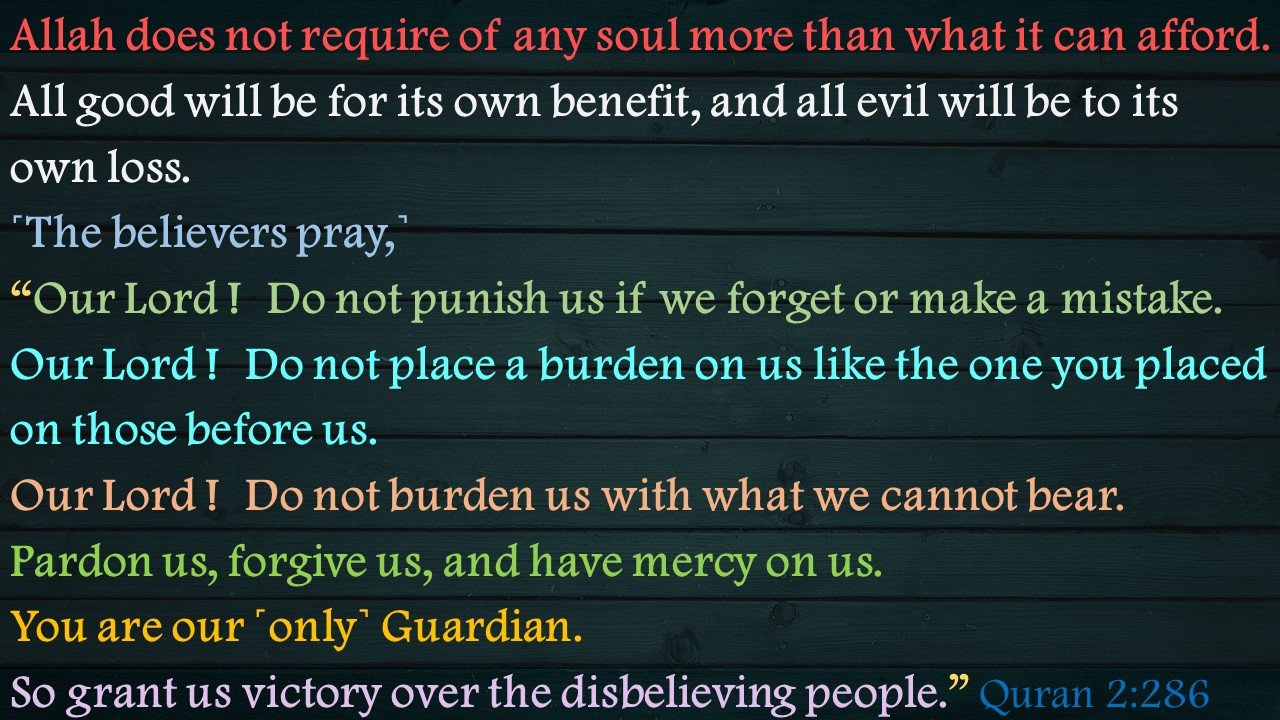9
Jun, 2022
10
May, 2022
Quran 2:264
Islam, Quran Allah, ayat, bare, believe, Chapter 2, charity, daily, day, disbelievers, generosity, guide, hard, hurtful, inspirations, islam, islamic, judgement, last, not, quran, reminder, reward, rockssoil, show off, stone, Surah, unable, Verse 264, washed, waste, wealth, words
16
Mar, 2022





